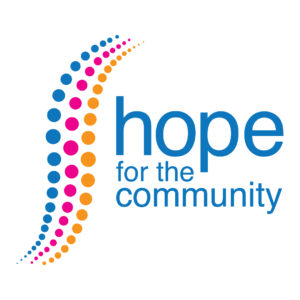 Caring Together was recently able to support more than 100 parents of children with autism from across Cambridgeshire, Peterborough and Norfolk to go through the Hope programme. And we are really pleased to see the feedback on the course showing how beneficial it was to the parents.
Caring Together was recently able to support more than 100 parents of children with autism from across Cambridgeshire, Peterborough and Norfolk to go through the Hope programme. And we are really pleased to see the feedback on the course showing how beneficial it was to the parents.
The Hope programme was an online six-session self-management programme that was created by parents of autistic children, researchers at Coventry University and health and social care professionals to help improve mental health and reducing isolation amongst parent carers.
Head of carer services, Andy McGowan said, “Parent carers have seen their lives heavily affected by the coronavirus pandemic. It has impacted how they can access their normal support including from family and friends, the whole routine they and their family have, and all aspects of family life such as work life and education.
“Given the effects of this practically as well as on their mental and physical health, we were very pleased to be able to offer parents of children with autism this support.
“It has been really good to hear how those who took part reported such positive effects in terms of decreased depression, being less anxious and increased positive mental wellbeing.
“I would really encourage carers to contact us to find out what support and opportunities are available to them as we know the right support does make a real difference.”
You can contact us on 0345 241 0954 or at [email protected]
Feedback from parents involved included,
“The course was phenomenal. I was unsure whether or not I had the energy to approach this, but I am so glad I did!”
“I was encouraged by the course facilitators and reassured that there is plenty of time to make a start if I felt I still wanted to. It was a huge weight off my already heavy shoulders”.
“I couldn’t believe how the simple things in life, like journaling, gratitude and goal setting could make such a huge difference to my health wealth, both mentally and physically”.
“I have been back to work now for two months. The HOPE Programme has given me some great life skills, a toolkit if you like so I can confidently bring any challenges back from chaos to rebalancing and nurturing me”.
The programme has six weekly online group sessions, which enable people to self-manage whatever difficult circumstances that they find themselves in, developing their psychological strengths of hopefulness, optimism, confidence, and resilience.
The impact of the Hope project
Parent carers average mental wellbeing (WEMWBS) score was 39.4 before they started the Hope Programme, indicating low wellbeing. Being part of the Hope Programme was associated with an average increase of 6.9 (39.4 to 46.3) when the parents had finished the course. This is a meaningful improvement from low to average mental wellbeing range.
Parent carers average anxiety (GAD-7) score was 8.9 before they started the Hope Programme, indicating moderate levels of anxiety. Being part of the Hope Programme was associated with a decrease of 2.7 (8.9 to 6.2) from pre to post-course. This is an improvement from moderate towards the mild anxiety range.
Parent carers average depression (PHQ-9) score was 9.9 before they started the Hope Programme, indicating near moderate levels of depression. Being part of the Hope Programme was associated with an average decrease of 2.5 (9.9 to 7.3). This is an improvement from moderate towards the mild depression range.
More about the Hope project
This project was part funded by Carers Trust as part of their Carers Trust Network Innovation Fund. In light of service changes due to COVID-19, Carers Trust is supporting and piloting innovation across the UK.
The project involved three Carers Trust network partner organisations – Caring Together, Carers Trust Heart of England, and Northamptonshire Carers – who worked with Coventry based social enterprise Hope For The Community CIC.
The online Hope Programme has been developed to support parents who are unable to access the face-to-face programme. The course is not delivered in “real time” – it offers the flexibility of working at a leisurely pace, from their home computer or via a smartphone, tablet, laptop. There is also an optional live mindfulness meditation session in week three.
The Hope course cover topics such as mindfulness, goal setting, anxiety, fatigue and stress management, healthy eating, physical activity and working with health care team. The online content comprises text, images, downloadable documents, links to external websites.





